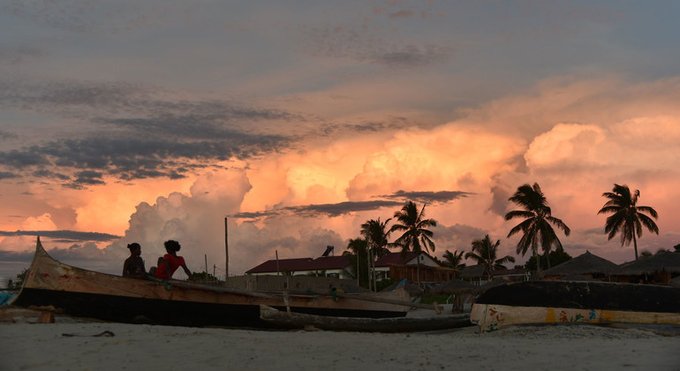With extreme weather events increasingly impacting countries across the world, the deputy UN chief on Monday underlined the importance of limiting temperature rise to the internationally agreed goal of 1.5 degrees Celsius above pre-industrial levels.
“The entire planet is going through a season of fire and floods”, Amina Mohammed told a high-level meeting on climate action, primarily hurting fragile and vulnerable populations in rich and poor countries alike.
Speaking via video message to the Dialogue on Accelerating Adaptation Solutions Ahead of COP26, the annual UN climate conference, which will take place in Glasgow in November, the deputy secretary-general noted already-visible impacts with a 1.2 degree rise.
“Countries and populations worldwide – particularly those most vulnerable and least responsible for the climate crisis – will experience even more devastating consequences”, she said.
“The effects will reverberate through economies, communities and ecosystems, erasing development gains, deepening poverty, increasing migration and exacerbating tensions”.
With “bold and decisive steps” towards a net-zero global economy by 2050, Mohammed said that the world could still limit global warming to within 1.5 degrees.
“Acting now is a question of climate justice. And we have the solutions”, she said.
While a “massively scaled-up investment” in adaptation and resilience is “critical” for those at the frontlines of the climate crisis, she informed the meeting that to date, only 21 percent of climate finance is channelled to adaptation efforts.
“Of the US$70 billion that developing countries need now to adapt, only a fraction is being provided”, the deputy UN chief stated, adding that adaptation costs to the developing world could rise to as much as US$300 billion a year by 2030.
In addition to being a moral imperative, there is also a clear economic case for early investments in adaptation and resilience building.
“Lives will be saved, and livelihoods protected”, she said, noting that this was why the Secretary-General had called on donors and multilateral development banks to allocate 50 per cent of total public climate finance to adaptation and resilience.
Nevertheless, countries which need this support, continue to face severe challenges accessing climate finance.
Mohammad stressed the importance of simplifying rules and easing access for least developed countries (LDCs), small islands developing States (SIDS) and other vulnerable nations and to accelerate initiatives, such as the African Adaptation Acceleration Programme jointly developed between Global Centre on Adaptation and African Development Bank.
The programme has the potential to deliver rapid and transformative results that protect lives and livelihoods, she continued and will galvanize climate resilient actions to address the impacts of Covid-19, climate change and the economy.
“I welcome this much needed support for people of Africa”, she said.
With less than 80 days to COP26, the deputy UN chief urged the participants to “act boldly now for people and planet before it’s too late”.
“We must respond to the climate crisis with solidarity. Adaptation can no longer be the neglected half of the climate equation”, she concluded.
SOURCE: UN NEWS CENTRE/PACNEWS














